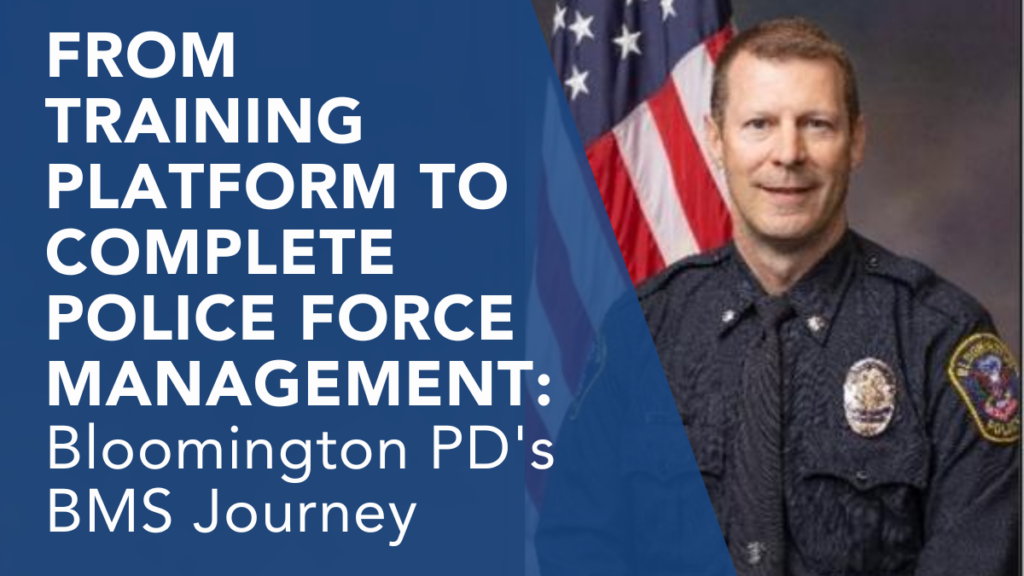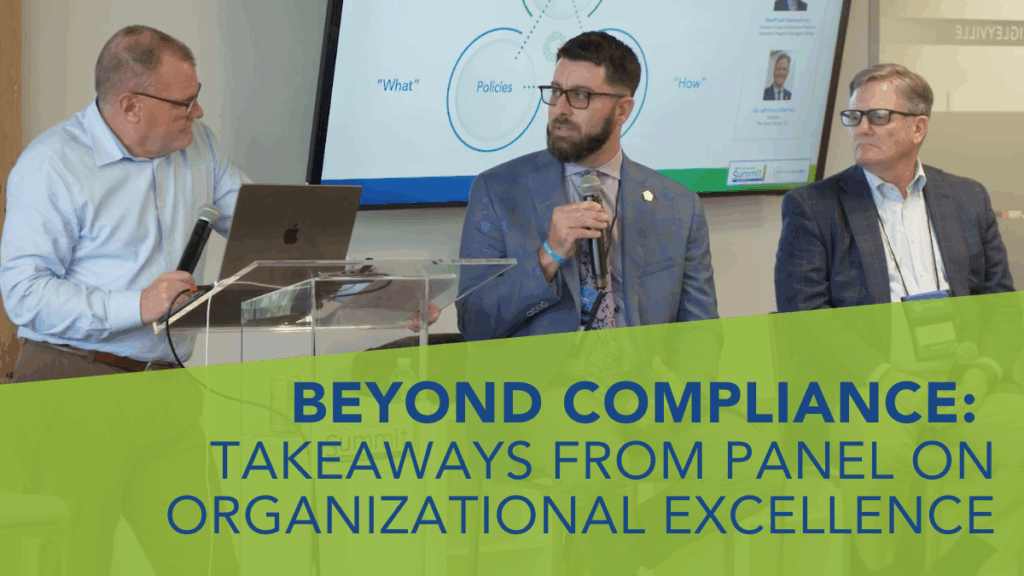Why Modern Police Leadership Demands Data-Driven Wellness
Posted
May 29, 2025
Share:
Benchmark CEO Ron Huberman interviewed Commissioner Michael Harrison, former commissioner of the Baltimore Police Department and superintendent of the New Orleans Police Department, at Benchmark’s 2024 Customer Summit. Commissioner Harrison shares insights on how modern police leadership requires systematic approaches to officer wellness and performance management.
Learn more about Benchmark’s 2025 Customer Summit here.
The challenge of leading a modern police department has never been more complex. With thousands of officers spread across multiple shifts and districts, how does a chief ensure consistent, effective supervision that protects both the community and the officers themselves?
Commissioner Harrison, who successfully led major police departments in New Orleans and Baltimore through federal consent decrees, offers a compelling framework for thinking about this challenge—and why data-driven wellness approaches are no longer optional, but essential.
The Chief’s Ultimate Responsibility
The hierarchy of protection, as Commissioner Harrison describes it, places the ultimate responsibility on leadership to systematically safeguard officers’ wellbeing and careers. But how do you operationalize this responsibility across an entire department?
Officers protect community members from criminals, sergeants protect community members from the officers, lieutenants protect officers from their sergeants, commanders protect officers from the system, from the agency above that and the chief, we protect the officers from themselves and we protect the city from its police department.
The Scale Problem: Why Good Intentions Aren’t Enough
Commissioner Harrison identifies a critical flaw in traditional police supervision: inconsistency at scale. Without systematic approaches, even the best-intentioned supervisors will handle officer wellness issues differently, creating inequity and missed opportunities for intervention.
You might have the technology to help you, which, which is what Benchmark did for me in Baltimore and is doing now for other agencies. Otherwise, we’re relying on those sergeants to do it the same way. But if you have a hundred sergeants in New Orleans or the 300 in Baltimore, I’m relying on 300 different ways of viewing, what could be a problem and handling it 300 different ways.
Building Trust Through Protection, Not Punishment
The key to successful wellness programs lies in how they’re positioned and implemented. Commissioner Harrison emphasizes that technology and data must be framed as protective tools.
Make sure they understand tools like Wellness and Excellence and EIS are not disciplinary tools. They’re tools to help them do their job better, to help them know what they otherwise would not know, to help them make decisions that they otherwise may not know how to make. It’s not big brother watching or spying. It is a tool to help you protect the officer’s careers. We are responsible to help them protect them from themselves.
The Fatigue Example: When Data Drives Intervention
Commissioner Harrison provides a concrete example of how data-driven wellness can guide supervisor conversations. This approach, which utilizes data to identify concerning patterns and then facilitates supportive conversations, exemplifies how modern wellness programs should operate.
We have to also teach and empower sergeants to take the right action to sit down with their subordinate officer and say, this is not healthy. You are working this much because of some other underlying issue that is unresolved. Let’s, try to resolve what that underlying issue is that’s causing you to think you have to work this much. Which is causing fatigue, which is causing all the other things that manifest because of fatigue.
The Path Forward: Systematic Change That Lasts
Commissioner Harrison’s experience with consent decrees and organizational transformation reinforces the importance of systematic, data-driven approaches to police reform and officer wellness.
We’re not trying to gather and collect data for the got you moment. We’re trying to collect data to help better manage the agency, but help you make better decisions, be a better officer. When we do that, we change how community view, the way we police. Yes, we can create good policy. Yes, we can create good discipline systems, but when we do that, we actually do it in a way that makes the community see us differently…
Conclusion: The Technology Commissioner Harrison Wishes He’d Had
Commissioner Harrison’s insights reveal the critical gap that modern police leaders face: how to systematically protect and develop officers at scale while maintaining consistency and building trust. His framework, from protecting officers from themselves to changing reward systems, provides the philosophical foundation that data-driven wellness programs like First Sign® Precision Wellness are designed to operationalize.
The question isn’t whether police departments need better wellness oversight. Commissioner Harrison’s experience demonstrates that they do. The question is whether they’ll embrace the systematic, research-based approaches that can finally give chiefs the tools they need to fulfill their ultimate responsibility: protecting their officers from themselves.
First Sign® Precision Wellness uses advanced data science to identify officers who may need wellness support, providing the consistency and protective framework that leaders like Commissioner Harrison recognize as essential for modern policing.
*This blog post was generated with the help of artificial intelligence.
Ready to Experience the Benchmark Difference?
Benchmark Analytics and its powerful suite of solutions can help you turn your agency’s challenges into opportunities. Get in touch with our expert team today.



